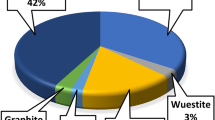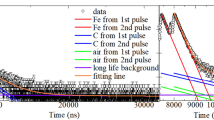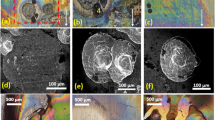Abstract
IN open-hearth steel-making, chemical reactions take place between the metal bath and a supernatant slag layer, and any material balance on the process demands an accurate knowledge of the masses involved. Metal mass varies only slightly throughout a heat and can be assessed with acceptable accuracy from the amount of steel produced. Slag mass, however, varies considerably throughout a heat, and there is a great need for a method of estimating it which has greater accuracy than the present methods based on a lime/magnesia or a phosphorus/manganese balance.
This is a preview of subscription content, access via your institution
Access options
Subscribe to this journal
Receive 51 print issues and online access
$199.00 per year
only $3.90 per issue
Buy this article
- Purchase on Springer Link
- Instant access to full article PDF
Prices may be subject to local taxes which are calculated during checkout
Similar content being viewed by others
Author information
Authors and Affiliations
Rights and permissions
About this article
Cite this article
CHURCH, G., HESELWOOD, W. & NICHOLSON, G. Radioactive Method for the Determination of Slag Mass during the Basic Open-Hearth Steel-making Process. Nature 179, 1294–1295 (1957). https://doi.org/10.1038/1791294a0
Issue Date:
DOI: https://doi.org/10.1038/1791294a0
Comments
By submitting a comment you agree to abide by our Terms and Community Guidelines. If you find something abusive or that does not comply with our terms or guidelines please flag it as inappropriate.



